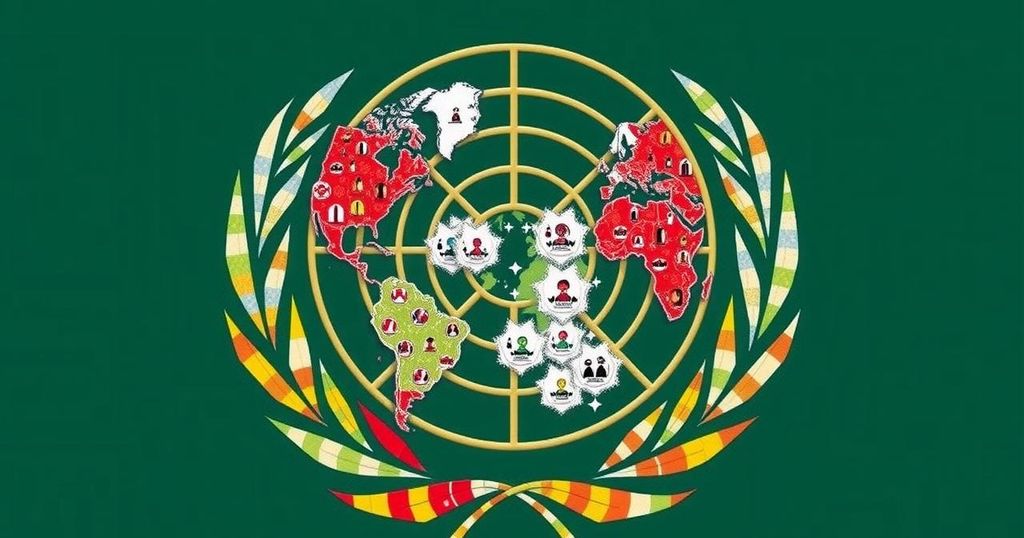During UN climate talks, negotiators from developing nations rejected a $300 billion proposal for climate financing, demanding more substantial support to address climate change impacts. Activists criticized wealthier nations for insufficient commitments, and growing tensions led to walkouts from key developing country groups. The urgency for a more equitable financial agreement persists as developing nations seek $1.3 trillion for climate adaptation and mitigation efforts.
During a heated session at the United Nations climate talks, negotiators from both developed and developing nations struggled to finalize an agreement for climate financing intended to support low-income countries in addressing climate change. The draft proposal, which aimed to raise $300 billion in climate finance annually, met with considerable disapproval from delegates representing African nations and small island states. Frustrated by the discussions, representatives from the Least Developed Countries bloc and the Alliance of Small Island States exited the negotiations, stating that the current proposal was unacceptable and required revision.
The envoys denounced what they perceived to be a strategy of attrition employed by wealthier nations to minimize their financial commitments. This tactic, they argued, was leaving smaller nations vulnerable amid an ongoing climate crisis. John Podesta, the United States climate envoy, faced criticism from activists for the US’s perceived lack of contribution to global efforts. Following the meeting, the focus shifted to significant funding requests from developing countries, a total of $1.3 trillion over the coming years to combat climate impacts and facilitate a transition to renewable energy sources.
Despite articulating needs over the ongoing negotiations, hopes remain among some participants for a resolution ahead of departing flights, conveying an inherent urgency amidst growing discontent. Eamon Ryan, the Irish Environment Minister, emphasized the necessity of addressing not just the financial figure at stake but also how to raise the funds required for an effective climate response. Overall, the future of climate financing negotiations appears uncertain as international parties face significant divides and unresolved demands.
The UN climate talks are pivotal for establishing international climate finance frameworks, where nations negotiate commitments to assist developing countries in their fight against climate change impacts, such as extreme weather events and rising sea levels. These discussions have historical significance as they emerge from agreements like the Paris Agreement, where wealthier nations pledged to support vulnerable countries financially. Currently, there exists a pressing need for clarity and commitment concerning funding amounts and modalities necessary to address climate adaptation and mitigation efforts, particularly given the pressing realities of climate-induced crises worldwide.
The recent UN climate talks have highlighted deep divisions between developed and developing nations regarding climate finance agreements. With a rough draft now dismissed as inadequate and growing frustration among poorer nations over the perceived lack of commitment from wealthier countries, the negotiations remain stalled. As the urgency to address climate change escalates, it is crucial for all parties to engage constructively and work towards a more equitable financial framework that adequately meets the needs of vulnerable populations.
Original Source: www.voanews.com






